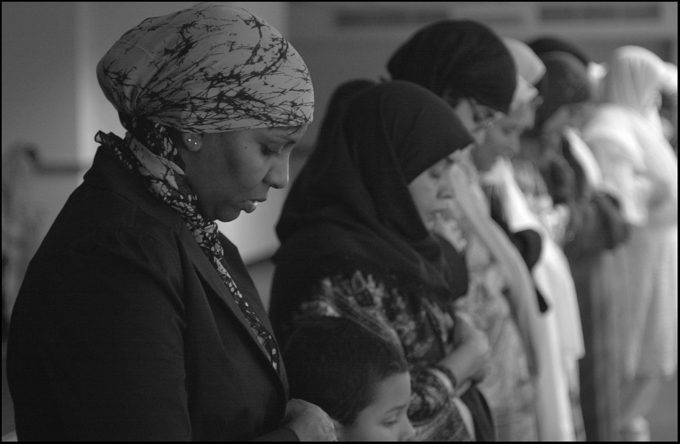
Continuing with my manuscript on Islam for Latter-day Saints:
In terms of their prospects for going to either heaven or hell, men and women are equal in Islam. “All human beings are equal,” the Prophet Muhammad taught, “equal as the teeth of a comb. There is no superiority of a white over a black nor of any male over the female.” “Men as well as women,” declares the Qur’an, “shall be rewarded for their labours.”[1] “The believers who do good works, whether men or women, shall enter the gardens of paradise.”[2] (It must be noted, however, that there does not seem to be a male equivalent to the paradisiacal houris.)
But, it may be objected, whatever its claims with regard to the life to come, Islam plainly discriminates against women in this life. Indeed, one of the most frequently heard complaints against Islam concerns the treatment of women. But one issue needs to be addressed up front. “Islam,” as such, does not “treat” women in any way, good or bad. Islam is merely a body of beliefs and practices; it is individual Muslims who behave in good or bad ways. And, just as among Christians and others, there are good and bad Muslims, kind and unkind, fair and unfair. Evil treatment of women such as has been featured in several successful Hollywood films and in best-selling books often seems to have more to do with the pathological character of certain personalities than with the core values of Islam itself. (In one popular movie, for instance, an abusive Muslim husband is shown repeatedly striking his American wife in the face. No doubt many in the audience saw this as just one more indication of the evils of Islam. But hitting one’s wife in the face is expressly forbidden by Islamic law.) What is more, cultures inclined to the oppression of women have often twisted and abused Islam—and not only Islam—to justify such behavior, but Islam should not be blamed for this. And certainly Latter-day Saints will understand that the values encouraged or tolerated by one’s society and culture are not always those at the heart of one’s religion.
As a matter of fact, Islam often treats men and women equally in this world. For instance, adulterers and adulteresses are each given 100 lashes.[3] There is no double standard. Furthermore, the Qur’an makes it difficult to accuse a married woman of adultery— which was a common way of getting rid of a spouse. Those who make false accusations of adultery, or even those who cannot produce four witnesses in order to confirm a charge of adultery, get 80 lashes.[4] We should not forget the context in which the Qur’an came to be: In pre-Islamic Arabia, female infanticide was common. Men could have an unlimited number of wives and could divorce them for any reason whatsoever, or for no reason at all. Inheritance always went to adult males, even if the closest surviving relative was a female. Muhammad and the Qur’an abolished female infanticide, permitted women to inherit, required that men pay a dowry to their wives that could not be taken away even by divorce. Men were required to sign prenuptial and marriage contracts that guaranteed certain rights and conditions to their wives. Women were given the right to initiate divorce, and to have final approval on any marriage partner selected by their parents. Widows were granted the right to remarry and were, in fact, encouraged to do so. Muhammad’s high opinion of women is reflected in a famous saying ascribed to him: “Paradise,” he is reported to have said, “lies at the feet of mothers.”
[1] 4:32.
[2] 4:124.
[3] 24:2.
[4] 24:4-9.











